While no actual human being develops in the precise sequence of a child development chart, new parents quickly learn that children do go through dramatic stages. Like other skills, becoming self-reliant takes time and can only develop through real time.
To begin with, parents often track all the “firsts” that a child achieves on a daily basis but as the list grows longer we come to expect changes. The way that most young children acquire language and skills is so rapid that later—even when parents are getting a little more sleep—it becomes difficult to remain excited about each previous new word or action! However, there is one stage that most parents don’t forget and that’s when a child starts declaring, “I can do it myself.” All of a sudden, totally dependent infants morph into adamant creatures with distinct needs and wants. This exasperating but essential stage is filled with cute moments when children seem to hover between babyhood and childhood. But it can also be a difficult time for some parents if they fear that their child may not need them any longer.
As children mature, they continue to develop and require more experiences where they can make independent choices without parents. If parents don’t allow children to make decisions and do things on their own, they won’t develop confidence or realize that they are not just extensions of their caregivers. It’s a tricky line that parents walk! Sometimes giving children room to spread their wings seems counter intuitive, but in order to grow into a self-reliant adult, children need to struggle without the offer of a quick fix. Even when parents can take care of things, the better choice is to support a child through the process of working through and solving problems. Long after a problem has been forgotten, a self-reliant child will remember hearing, “Wow! You amaze me! You really worked hard to figure that out.”
A child who is self-reliant can think for themselves, trusts their own judgment and feels in control of their life. This leads to becoming more active, independent and competent adults and citizens. The child also develops skills to draw on inner resources and use coping mechanisms even when they feel things are not easy. Sending a child to camp is a perfect way for a child to further develop self-reliance in a nurturing, safe and supportive environment. The whole camp experience is designed to illustrate to the camper that becoming a successful person takes personal strength as well as playing a role in a larger group–with the emphasis always on FUN. I can’t think of a more wonderful childhood experience for facilitating such important life skills!
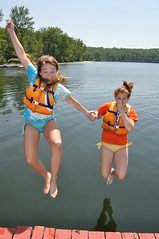 Of course, the process of becoming self-reliant is not easy, but that’s where camp staff and counselors are there to help your child adjust and learn. If you wonder how to help your child develop self-reliance, remember that each child comes to conclusions for themselves, so the only way to experience camp is to be a camper. They are building on early determination to “do it themselves,” and those first fierce moments of independence are precious. Camp offers a full range of fun, adventure, and opportunities to experience emotions with different adults and in new, safe situations. By the end of summer camp, campers bring a lot of stuff home. There’ll be great crafts, stories to tell and some inevitable laundry to wash—but every camper in the world—also brings home a new understanding of themselves.
Of course, the process of becoming self-reliant is not easy, but that’s where camp staff and counselors are there to help your child adjust and learn. If you wonder how to help your child develop self-reliance, remember that each child comes to conclusions for themselves, so the only way to experience camp is to be a camper. They are building on early determination to “do it themselves,” and those first fierce moments of independence are precious. Camp offers a full range of fun, adventure, and opportunities to experience emotions with different adults and in new, safe situations. By the end of summer camp, campers bring a lot of stuff home. There’ll be great crafts, stories to tell and some inevitable laundry to wash—but every camper in the world—also brings home a new understanding of themselves.
How did you learn self-reliance at summer camp and what strategies helped you support your independence? Which experiences do you think especially helped kids develop inner strengths? We look forward to your stories too!
Deborah-Eve

Thanks for the images AmberStrocel and nattu.

 570-798-9831
570-798-9831
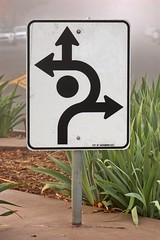 Starting this summer, Camp Weequahic is moving to an individual choice based program where campers can design and create their own fun summer experience. Prior to camp, campers and parents will complete an on-line program selection form where they will have the opportunity to list 8 to 10 of their favorite activities they want to enjoy throughout the summer. These choices are called “Excel” Periods. Once the Weequahic programming team receives this information, they will build a program especially for you! To round out each program day, each camper will then get to choose 2 ‘Explore” periods a day once they are at camp. The Explore periods are age- and developmentally appropriate activities. These “spontaneous” choices are activities a camper may like to try once or twice…instead of being “focused” on that program for their entire stay at camp. These daily choices can be anything in the Weequahic menu of activities and change daily such as climbing, play practice, guitar, baseball instruction, cooking and so on. Try one or try ’em all during these speical “Explore” periods! There are tons of daily activities to choose from.
Starting this summer, Camp Weequahic is moving to an individual choice based program where campers can design and create their own fun summer experience. Prior to camp, campers and parents will complete an on-line program selection form where they will have the opportunity to list 8 to 10 of their favorite activities they want to enjoy throughout the summer. These choices are called “Excel” Periods. Once the Weequahic programming team receives this information, they will build a program especially for you! To round out each program day, each camper will then get to choose 2 ‘Explore” periods a day once they are at camp. The Explore periods are age- and developmentally appropriate activities. These “spontaneous” choices are activities a camper may like to try once or twice…instead of being “focused” on that program for their entire stay at camp. These daily choices can be anything in the Weequahic menu of activities and change daily such as climbing, play practice, guitar, baseball instruction, cooking and so on. Try one or try ’em all during these speical “Explore” periods! There are tons of daily activities to choose from.
 The official end of summer has passed and kids all over the nation are back at school and I can easily imagine the hallways are still bursting over with stories of summer camp and all of its amazing experiences. Let me tell you about College Days! The fireworks over the lake on the last night! I so miss my camp friends…
The official end of summer has passed and kids all over the nation are back at school and I can easily imagine the hallways are still bursting over with stories of summer camp and all of its amazing experiences. Let me tell you about College Days! The fireworks over the lake on the last night! I so miss my camp friends…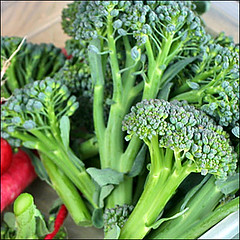




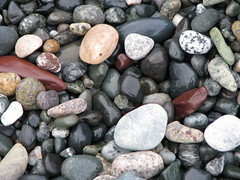 Louv discovered that
Louv discovered that 
 Here at Camp Weequahic, we spend a lot of time in the Fall and Winter seasons traveling around the country to meet with future campers. We schedule home visits where you are, to come and meet your child and answer any questions your family has. Families usually contact us anywhere from a month to a week out from where we are headed (you can find out
Here at Camp Weequahic, we spend a lot of time in the Fall and Winter seasons traveling around the country to meet with future campers. We schedule home visits where you are, to come and meet your child and answer any questions your family has. Families usually contact us anywhere from a month to a week out from where we are headed (you can find out 
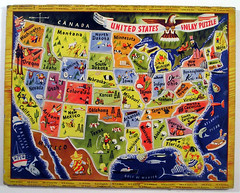 When we can, we especially like to bring new and current camp families together to share experiences. To make this happen, Cole will host ice cream parties in Florida, New York, Connecticut, Philadelphia and New Jersey. Both the home visits and ice cream parties bring Cole a special pleasure as camp director. He gets to meet everyone and to know them before camp starts. That way, they have a familiar face greeting them when they arrive. More importantly, these meetings allow Cole to prepare the best possible experience for the children, from their bunk life to the counselor who will share their summer with them.
When we can, we especially like to bring new and current camp families together to share experiences. To make this happen, Cole will host ice cream parties in Florida, New York, Connecticut, Philadelphia and New Jersey. Both the home visits and ice cream parties bring Cole a special pleasure as camp director. He gets to meet everyone and to know them before camp starts. That way, they have a familiar face greeting them when they arrive. More importantly, these meetings allow Cole to prepare the best possible experience for the children, from their bunk life to the counselor who will share their summer with them.


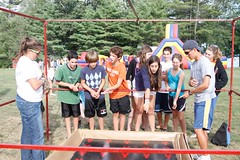 “Camp teaches values such as self-esteem, teamwork, and caring — areas where traditional schools sometimes cause more detriment than good. And camp allows everyone, not just the top student and the best athlete, to thrive and enjoy the process of learning,” says Peg Smith, CEO of the
“Camp teaches values such as self-esteem, teamwork, and caring — areas where traditional schools sometimes cause more detriment than good. And camp allows everyone, not just the top student and the best athlete, to thrive and enjoy the process of learning,” says Peg Smith, CEO of the 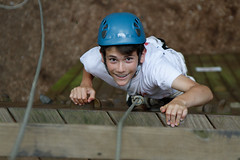
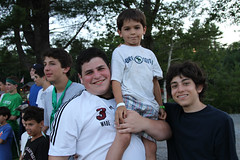




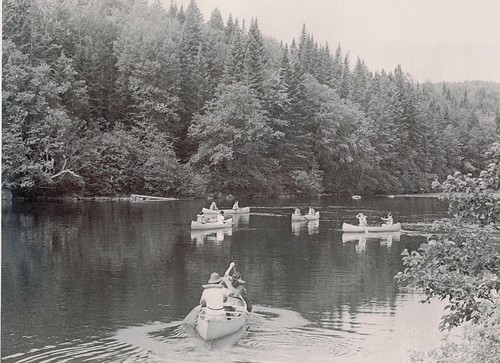
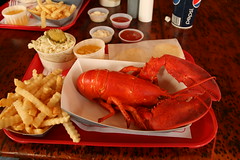 Laurel also hosts College Days and Lobster and Steak/Final Ceremony. College Days (which lasts five days!) is Laurel’s answer to the camp color war and includes spirit, fun, games, tug ‘o war, swim meets, track meets, staff competitions, Apache relays, silent meals, treasure hunts, dance competitions and much more. Laurel finishes camp with a flourish by hosting a meal with lobster direct from the sea. After all, who could come to camp in Maine and not love lobster? The campers finish their summer with speeches, traditional songs and a night sleeping under the stars.
Laurel also hosts College Days and Lobster and Steak/Final Ceremony. College Days (which lasts five days!) is Laurel’s answer to the camp color war and includes spirit, fun, games, tug ‘o war, swim meets, track meets, staff competitions, Apache relays, silent meals, treasure hunts, dance competitions and much more. Laurel finishes camp with a flourish by hosting a meal with lobster direct from the sea. After all, who could come to camp in Maine and not love lobster? The campers finish their summer with speeches, traditional songs and a night sleeping under the stars.